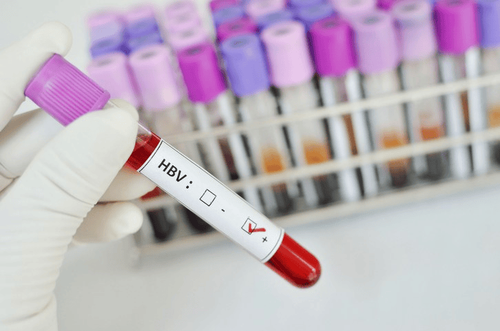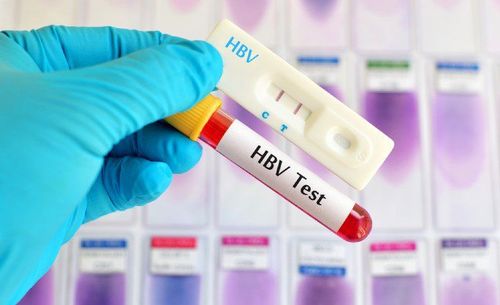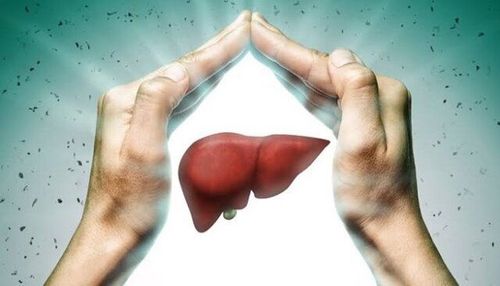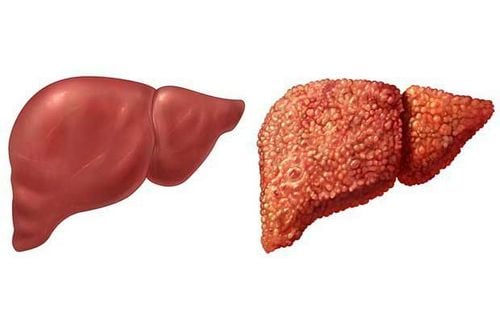The article was written by Master, Doctor Nguyen Thi Nhat, an Infectious Disease Specialist in the Department of Examination & Internal Medicine at Vinmec Hai Phong International General Hospital.
A negative hepatitis B test is the key goal of the treatment. This is a positive sign that the virus may not be active. However, even after achieving this, patients should follow a healthy lifestyle with regular exercise to improve their health and avoid recurrence.
1. What does a negative hepatitis B test mean?
1.1. HbsAg negative
The HbsAg test is used to diagnose hepatitis B. Positive results indicate that the test taker has been infected with hepatitis B. Conversely, in case the result is negative, the test taker does not have hepatitis B.
However, due to many reasons such as technical errors or low-sensitivity tests, there are several cases of false negative results, making it challenging to detect individuals with low levels of hepatitis B.
1.2. HBV-DNA negative
HBV-DNA test is used to screen for viruses at a certain threshold. The negative result indicates that the hepatitis B virus level is under the threshold detection. In acute hepatitis B cases, it is a positive signal. On the other hand, this result only indicates that the amount of virus is not high in chronic patients.
A negative result for HBV-DNA shows that the treatment is processing positively, as the virus’s ability to transmit has decreased. However, this does not mean the virus has been completely eradicated; rather, it has been reduced to a level that is below the minimum detectable threshold.
Both the quantitative HBV-DNA and the HbsAg are important in achieving treatment outcomes. Patients should continuously monitor their health and follow their doctor’s advice regarding whether to continue or stop treatment. If the virus recurs, the treatment process can become quite complicated.

The HBeAg test is used to monitor whether the virus is reproducing or inactive. The negative test in acute hepatitis B shows that the virus has completely been eradicated from the body causing the possibility of transmission to disappear.
In some cases, the virus is only in the inactive stage and has not attacked the liver cells. To prevent the disease from spreading, relatives need to be vaccinated against hepatitis B. The negative hepatitis B test indicates the following possibilities: the virus has been eliminated from the body, the virus has stopped reproducing, or a mutation has occurred.
The optimal goal in treating the disease is to achieve a negative HbsAg test, which means the patient has recovered and can stop taking medication. Even in this condition, due to the antibodies not being produced enough, the small amount of staying virus can reactivate at any time.
Therefore, even if patients with hepatitis B have a negative test after treatment, they need to have regular check-ups as recommended by their doctor. Patients also need to build a healthy lifestyle, eat and rest properly, and avoid harmful factors to prevent the liver from being damaged and weakened to lower the recurrence risk.
2. Be aware of "sleeping" hepatitis B
Most people with inactive (or sleeping) hepatitis B often ignore the disease. If the patient continues keeping bad eating habits such as consuming a lot of fat, drinking alcohol and does not do health check-ups regularly, the risk that the virus reactivates strongly and damages the liver increases.
Hepatitis B is a disease that develops complicatedly and has no obvious symptoms. Only when the liver is damaged, which can lead to cirrhosis or liver cancer, does it reveal symptoms. Therefore, both individuals who are carriers and those have chronic inactive hepatitis need to apply measures to prevent the virus from reactivating.
For HBV carriers, as the virus is in the inactive state and does not affect liver function, it does not require to be treated with medication. Current treatment only helps control the outbreak of HBV in cases of acute and chronic hepatitis B.
To prevent the outbreak of hepatitis B virus, the virus carriers need to always maintain good health.
First of all, they need to protect their health and improve their immune systems to impede the development of the virus. Patients should abstain from alcohol and other alcoholic beverages; as well as quit smoking and limit their consumption of animal fat. Physical activities such as aerobics, walking, swimming, or playing badminton are recommended.

In addition, individuals infected with the virus need to use condoms during sex, not donate blood, and avoid sharing items such as razors, syringes, etc. to prevent infection to relatives and the community.
To closely monitor HBV and prevent the virus from reactivating, patients should have regular health check-ups and tests every six months. These tests include HBsAg, HBeAg, HBV-DNA, and liver enzyme tests. In addition, patients can also use traditional remedies like herbs to support the treatment of hepatitis B.
Besides, individuals with active hepatitis B should have regular check-ups every 3-6 months depending on their condition or the doctor recommendation. Early treatment and good control of chronic hepatitis B will help minimize liver damage and the risk of cirrhosis and liver cancer.
Hepatitis B transmission routes include blood, sexual intercourse, and from mother to child. Currently, vaccines have been developed to effectively prevent this disease. Therefore, vaccination is the first and most important step to minimize the impact of hepatitis B.
In addition, the patient’s relatives should be vaccinated promptly and fully as scheduled. If the vaccination is done well, there are no new hepatitis B cases.
Master. Doctor. Nguyen Thi Nhat has more than 10 years of experience in the field of artificial kidney and infectious diseases. She is currently an Infectious Disease Specialist in the Department of Internal Medicine at Vinmec Hai Phong International General Hospital.
To arrange an appointment, please call HOTLINE or make your reservation directly HERE. You may also download the MyVinmec app to schedule appointments faster and manage your reservations more conveniently.









